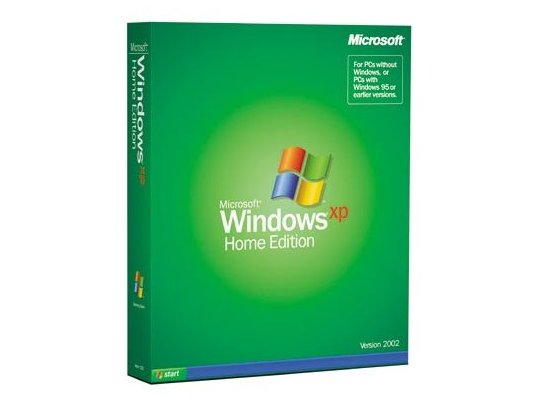XP is the biggest threat to Windows Vista
Six-year old OS is a thorn in Microsoft's side

Windows XP remains the biggest threat to the mass-take up of Windows Vista. That's according to an analyst at Forrester Research, who says that Vista's biggest competition isn't Apple or Linux. "It's Microsoft itself, it's XP," said Benjamin Gray, an analyst talking to PC World.
The major problem is users' preference for XP because it does what they need it to and runs what they want.
"A big issue [with Vista] is application compatibility," Michael Silver, a Research VP at Gartner, told us. Silver says that reports of poor Vista stability aren't helping. At this point Vista is not as stable as XP according to most. [People] are not going to move from a stable system that runs most things to an unstable system that doesn't run everything."
But Silver does concede that Microsoft is working hard to get Vista to the stage where it is ready for mass adoption. "It's now getting to the point where most applications are supported. Microsoft is working on Service Pack 1 and putting out fixes every month."
What does Vista offer over XP?
But is the problem down to Microsoft itself? Paul Douglas, Editor of Windows Vista: The Official Magazine thinks that people are simply not aware of the benefit the new OS could offer them.
"When Microsoft was developing Windows Vista it placed an emphasis on making it understandable and accessible, so it wouldn't be a huge learning curve for people who were moving from Windows XP," he says.
"As a result some Windows XP users are unsure of all the benefits that Windows Vista offers; rather than a revolutionary user experience, the changes are subtler, yet more significant."
Get daily insight, inspiration and deals in your inbox
Sign up for breaking news, reviews, opinion, top tech deals, and more.
Asked whether Microsoft could drop support for XP before its projected 2014 date, Michael Silver suggested that it was unlikely. "I don't think so. It would be really difficult when Microsoft has made a big deal out of the lifecycle [policy]." Silver suggested the only way it could be done would be via a company-wide policy change on support, rather than a plan for XP especially.
'Incremental improvements'
Silver's firm, Gartner, published a research note at the beginning of the week which suggested that most people should hold off from upgrading to the new OS. It said that Vista offered "incremental, evolutionary improvements" although it said the included firewall was far more robust than that provided with Windows XP Service Pack 2.
However, the analyst added a caveat to this, saying that most of the security modifications are "available via third-party products today". He recommended that those thinking of installing Vista in multi-PC environments should only purchase the OS with new machines.
Indeed, there's the same argument for individuals, too. On anything other than recent hardware - i.e. kit released in the latter days of 2006 and on - Vista seems distinctly ill at ease. XP certainly can't be discounted, especially as Microsoft is due to give the OS another boost with a third Service Pack for XP, due in the first quarter next year.
But Microsoft claims Vista is selling well. In the conference call to reveal its quarterly sales figures last month, Microsoft Chief Financial Officer Chris Liddell told reporters that Vista sales stand at 88 million so far, compared to 45 million for Windows XP in the same period after its 2001 launch.
Internetnews.com reported earlier in the year that Microsoft had shifted 42 million copies of Vista through volume license agreements with larger customers - a figure undoubtedly included within the 88 million. Yet, this figure can't be taken at face value because a volume sale might mean another tick on a Microsoft spreadsheet but it doesn't necessarily mean the copy has actually been installed.
We'll all get Vista in the end
The bigger picture? This is all good news for Microsoft. Indeed, a certain crumb of comfort for Microsoft is that PC sales continue to rise, possibly by as much as 13 per cent over the next year. And most of them will ship with Vista. "Vista isn't a matter of if, but of when and how," says analyst Benjamin Gray.
In the same analyst call, Liddell said sales of 'client' - that's operating systems - to increase between 12 and 13 per cent during the current financial year that stretches before us. This figure is expected to be boosted in no small way by the advent of Vista SP1, still slated for sometime early in the new year.
But would they still be pro-XP after using Vista? Paul Douglas believes not. "While many people are understandable happy with Windows XP," he says, "I'd be very surprised to see them go back to it after a few months living with Windows Vista."
Dan (Twitter, Google+) is TechRadar's Former Deputy Editor and is now in charge at our sister site T3.com. Covering all things computing, internet and mobile he's a seasoned regular at major tech shows such as CES, IFA and Mobile World Congress. Dan has also been a tech expert for many outlets including BBC Radio 4, 5Live and the World Service, The Sun and ITV News.